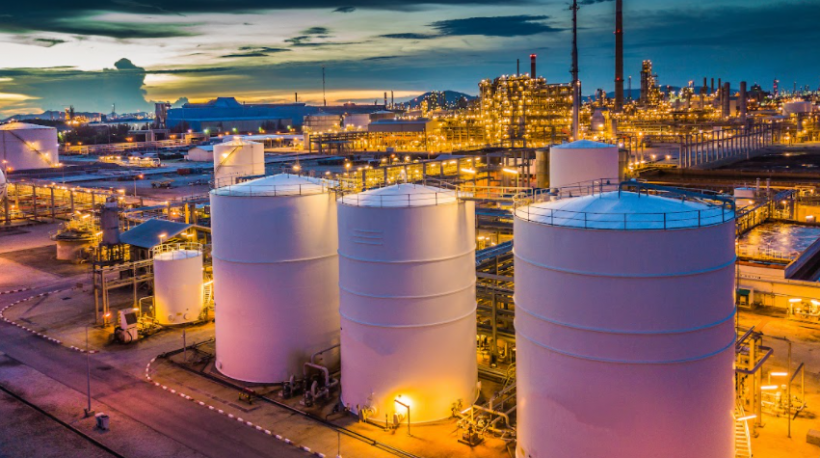The oil and gas industry is one of the richest globally. In addition, world-leading oil and gas producing countries are among the top world economies. Thus, if you're eyeing a career in this industry, you're bound to land yourself a lucrative job. Even with the benefits in this industry, not many people are aware of the possible career opportunities available.
The oil and gas sector has grown in leaps and bounds in Canada. It's a frontier that is helping the country get billions of dollars from the export of oil and gas. With the industry's growth, massive career opportunities have also emerged from field exploration to processing. Besides, you can work from the office instead of in the field as an accountant or IT professional offering oil and gas-related technology.
If you're a recent graduate seeking greener pastures, check out these energy jobs Alberta has. Alternatively, if you want to pursue a career path in the oil and gas industry, here is a list of careers for you:
1. Drilling Engineer
Your primary duties as a drilling engineer will be to develop, plan, and supervise drilling works for oil and gas wells. In addition, you're supposed to test and design wells and ensure the safe abandonment of depleted wells. You have a variety of places where you can work, such as offshore locations, on land, or mobile drilling units. Drilling engineers work closely with geoscientists and geologists. Other responsibilities of a drilling engineer include:
-
Preparing datasheets for wells
-
Scheduling drilling operations and determining the correct production flow rates
-
Selecting the appropriate well drilling equipment
-
Participating in conceptual designs of field development
-
Ensuring standards concerning environmental protection are maintained (in some instances, you'll be required to work closely with local governments so that you can comply with legislative requirements)
-
Overseeing seamless administration of drilling and service contracts
2. Geologist
Being a geologist is an exciting career path in the oil and gas industry. You'll be required to use your chemistry and geology knowledge to search for oil and gas deposits. You're also supposed to identify the amount of chemicals in minerals and rocks. In addition, your duties entail studying how the chemical deposits move in water systems and soil. Furthermore, you'll have to identify the amount of fossil fuel deposits in specified locations.
Your findings will be valuable in directing oil exploration, planning on cleaning toxic waste sites, and leveling up water quality. Other responsibilities include:
-
Making site visits to gather site samples
-
Determining the nature, components, and age of rocks, soil, and minerals
-
Identifying and mapping appropriate geochemical locations for research and analysis
-
Generating data and offering feedback to clients
-
Updating the company on new research and developments
-
Working closely with commercial managers, geologists, and petroleum engineers
-
Coming up with relevant computer designs using tailored oil and gas software
-
Drafting technical papers and reports
3. Mining Engineer
A mining engineer is an expert in science and technology. They use their qualifications to mine minerals. Their primary role is to supervise the development of efficient and safe mining sites for both underground and surface works. In addition, you have to know how developed structures can affect their surroundings. Furthermore, you've to be present in every mining stage and before the groundbreaking of every new site to determine its viability.
It's also the responsibility of a mining engineer to supervise mining production works and rehabilitation of abandoned sites. Besides the mentioned responsibilities, other duties include:
-
Monitoring underground mining processes
-
Giving consultancy services regarding mineral extraction works
-
Carrying mining feasibility studies
-
Determining the safety of every mining equipment
-
Determining the safety of each site and its health on matters such as ventilation
4. Energy Engineer
As an energy engineer, your work will involve generating energy from natural resources or using renewable resources like wind, biofuels, solar, and hydropower. Your operations are not limited to the field. You can also work from an office or laboratory.
5. Hydrographic Surveyor

This career path will equip you with a critical understanding of underground water and how to use sound navigation systems and global positioning systems. To do this kind of work, you'll need world-class technology for planning sea beds, waterways, and harbors. In addition, you'll have to understand how to map underwater surfaces and the morphology of sea floors. Getting accurate depth, contours, and shape isn't an option. Other areas of expertise in this field are data acquisition, processing of offshore and onshore marine environments, and precise positioning. You'll spend quality time in drilling areas and onboard survey ships during your work.
Final Thoughts
A career in the oil and gas industry is one of the marketable professions. In addition, it's believed that this industry isn't highly populated. As a result, you can quickly secure work after graduation. The list provided in this article isn't exhaustive. Thus, you can do more research online to know other careers you can pursue in the oil and gas industry.
* This is a contributed article and this content does not necessarily represent the views of sciencetimes.com















